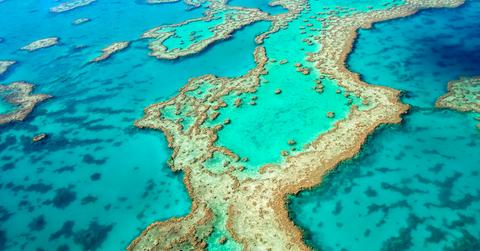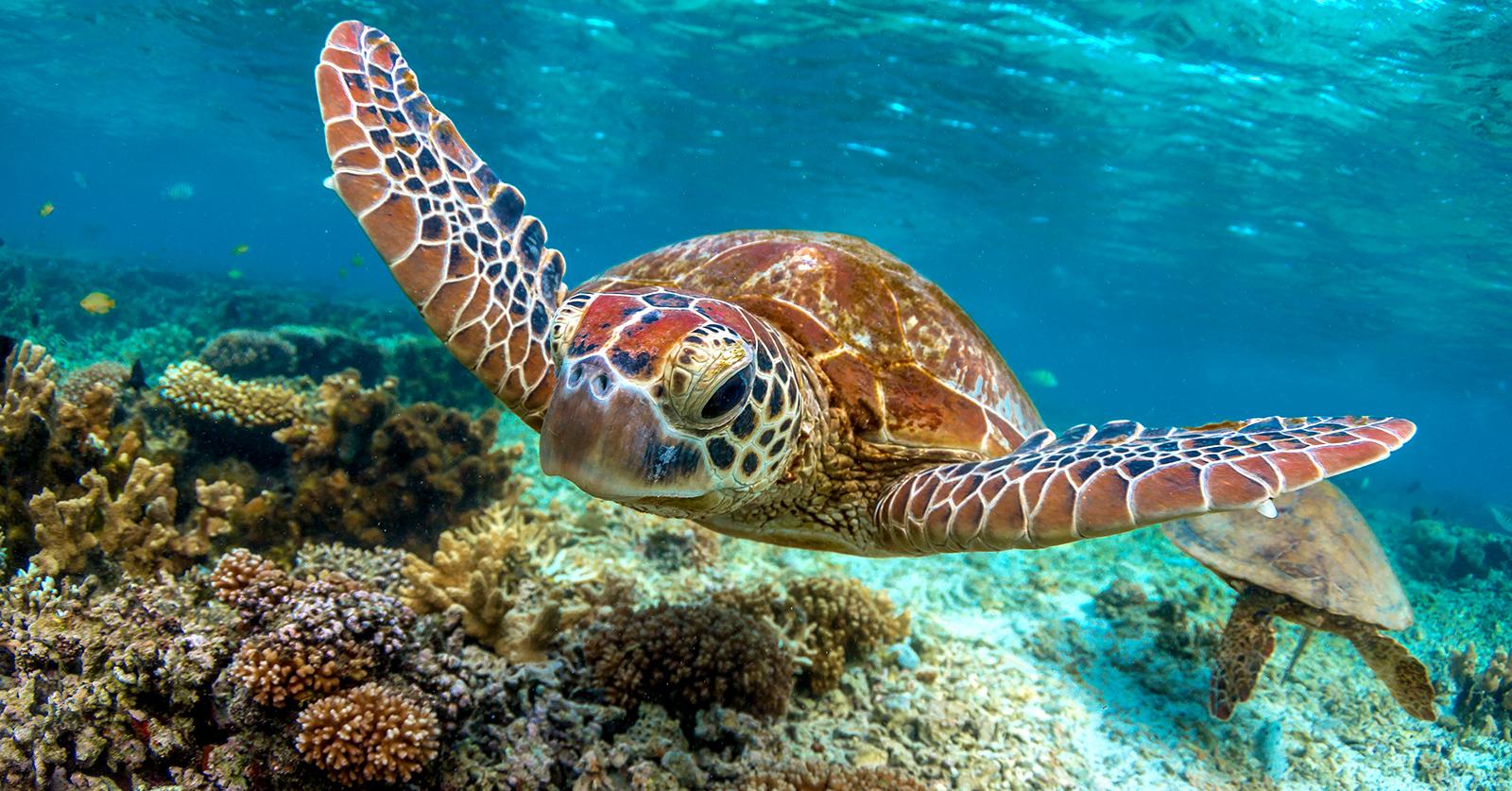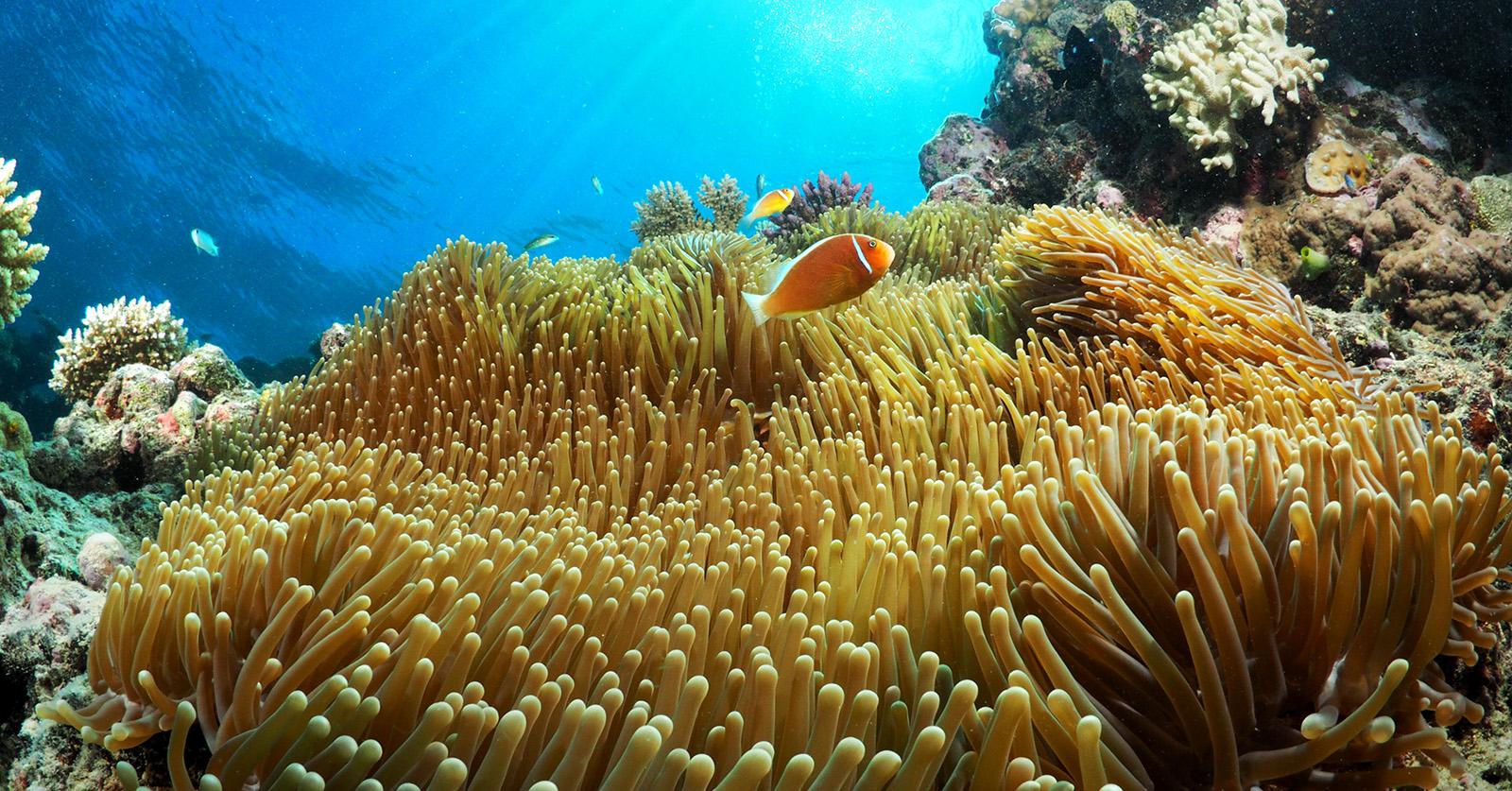People Are Visiting The Great Barrier Reef To Say Goodbye
As climate change continues to have a negative impact on the world's largest living structure more people are coming to bid farewell to the ancient reef.
Updated May 20 2019, 4:44 p.m. ET

Ecotourism has become a popular way for compassionate travelers to experience the world while giving back to the communities they visit but one environmentally-focused tourist activity in Australia that's popped up recently is a little different. Travelers are visiting The Great Barrier Reef to bid farewell before the impact of warming ocean temperatures destroy it completely.
Greater in size than the United Kingdom, Holland and Switzerland combined, the Great Barrier is a 1,400-mile-long stretch of coral off the coast of Queensland, northeastern Australia. It's the home for a variety of animals, including thirty species of whales, dolphins, and porpoises, six of the world’s seven species of threatened sea turtles, at least 30 species of mammals, and more than 1,500 fish species.
Although it's been around for 20 million years, the effects of climate change haven't been kind to the reef. In the last two years alone the the makeup and mix of species that encompass it have changed dramatically.

Warmer ocean temperatures put stress on coral, leading to coral bleaching, meaning the higher temperatures essentially "cook" the coral, turning the once colorful algae ghostly white. If "cooked" for too long the structures die off, but some coral can survive if it has time to recuperate.
In 2016 and once more in 2017, the Great Barrier was hit by mass bleaching events that left large areas of the once-colorful corals dying or dead, forever changing the structure. Scientists discovered the events caused the collapse of the ecosystem for 29 percent of the 3,863 reefs in the giant coral reef system, according to research published in Nature.
Environmental damage to the reefs haven't deterred tourists coming to the area but instead inspire some of them to visit. According to The Huffington Post, tourists visiting the area bring in nearly $5 billion a year in revenue and support over 64,000 jobs. Though poorly managed tourism could be a risk to the reef, tourism on the reef is currently well managed at the moment.
“I was there when it went from people saying: ‘Oh, don’t mention bleaching, you don’t want to talk about it because it’ll stop tourism’ to it then being this thing where people were coming and saying: ‘Oh we’re here to see the Great Barrier Reef before it dies,’” Lorna Howlett, a guide with Wavelength, a local tour operator running snorkeling trips, told The Huffington Post. When the last bleaching happened, the ocean got so warm “you were practically sweating in the water,” she said.

Advocates of the Great Barrier say it’s too soon for tourists to make a farewell tour. "Writing off the reef now," a member of the Australian Marine Conservation Society said, "will only seal the Great Barrier’s fate as doomed."
Though the damage to the reef has been extensive, the government announced earlier this year that it would spend about $365 million on reef conservation efforts, making it the largest single investment for reef conservation and management in the country’s history. Many argued though, the announcement still didn't address Australia's climate change problem.
“Science is well aware of what is killing coral on the Great Barrier Reef — it’s the excess heat that comes from burning fossil fuels,” said Bill McKibben, an American environmentalist, author and founder of 350.org, which aims to rapidly end the use of fossil fuels. “If the Turnbull government was serious about saving the reef, they would be willing to take on the industry responsible for the damage.”